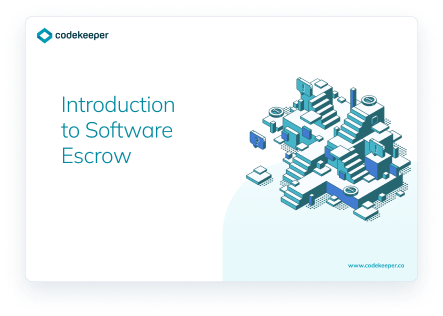Software Escrow
Securely store the source code of the applications that are the heart of your organization.
Continuity Escrow
Guarantee uninterrupted software availability with protected hosting and supporting services.
SaaS Escrow
Protect your complete SaaS environment and maintain recoverability of your cloud applications.
Software Backup
Recover any version of your database or application code whenever you need them.
Resources
Company
Codekeeper is ISO 27001 certified.
















